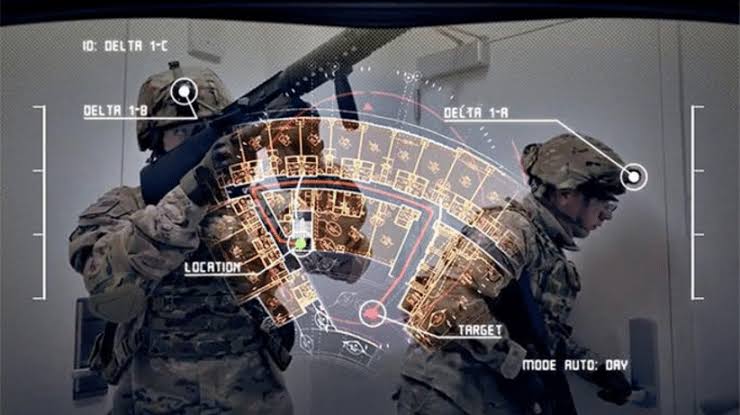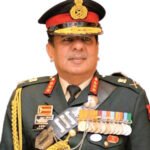“Conscience without intelligence is blunt, intelligence without conscience is numb” (Bhagavad Gita 18.73)
Intellectual capital is the bedrock upon which a modern military must be built. As the operational environments in higher defence decision-making become more complex, intellectual human capital becomes increasingly important to success. It encompasses cognitive ability, wisdom, and learning agility. Cognitive ability empowers leaders to navigate complex and disruptive situations with superior situational awareness and rapid decision-making. Wisdom is a fusion of knowledge, experience and communication skills, which when combined with learning agility fosters self-driven learning and adaptation. However, the effectiveness of intellectual capital hinges on its application and the organisational culture that nurtures it.
The Challenge of Quantification
Despite the military’s recognition of the need for intellectually adapt leaders at all levels, the promotion and selection processes often fail to acknowledge or reward cognitive ability and intellectual pursuits. Promotion boards typically rely on quantifiable metrics such as Annual Confidential Reports and course grading, leaving no room for quantifying an individual’s intellectual capital or cognitive domain. This bias against intellectualism, innovative ideas, and intellectual discourse hampers the development of the military’s intellectual edge.
Intellectual Overmatch: A Competitive Edge
Intellectual overmatch is the capacity of a warrior to outthink and outmatch potential adversaries in a disruptive conflict environment. It is cultivated through education, training and self-directed learning over time. Achieving intellectual overmatch involves elevating the intellectual threshold of the military and its educational institutions. From field armies to professional military education (PME) institutions and doctrinal constructs, a culture of intellectualism must permeate every level the military.
As the operational environments in higher defence decision-making become more complex, intellectual human capital becomes increasingly important to success
This institutional culture should enable individuals to contextualise, plan, decide, act and adapt faster and more effectively than adversaries. It should address challenges such as force structuring, doctrines, technology integration, information warfare, logistics and the fusion of kinetic and non-kinetic tools of national security. Achieving this cultural shift necessitates top-down leadership encouragement, career advancement incentives, and an adaptive talent management system.
The Anti-Intellectual Heritage
The Indian military‘s resistance to intellectualism can be traced back to its colonial legacy. The British Raj celebrated physical prowess and conformity over intellectual discourse. Those inclined toward intellectual pursuits were often ridiculed as ‘Chocolate Cream Soldiers’. This anti-intellectual heritage persisted post-independence, exacerbated by the political-military divide that marginalised military input in policy-making. Consequently, military education declined and a culture of conformity prevailed.
Today, the demand for cognitive agility in multi-domain warfare has highlighted the shortcomings of this legacy. The military’s reliance on established doctrines and guidelines could no longer suffice in the face of contemporary challenges. PME must prioritise intellectual capital investment to prepare war-fighters for future conflicts effectively.
Further, the virus of political patronage often stalls intellectual and professional military advice at the strategic level which often leads to leaders lacking organisation foresight and becoming conformists or pseudo-reformists.

Myths and Realities of Intellectualism
To foster intellectual overmatch, it is essential to dispel some myths and embrace the realities of intellectualism within the military:
Myth 1: An intellectual officer is the same as an intelligent officer, though intelligence and intellectualism differ significantly. While intelligence relates to IQ and the ability to learn and understand, intellectualism encompasses critical thinking, creativity and the ability to apply knowledge in complex situations. Intellectual leadership is also thought leadership. Simplistically, a thought leader is a combination of an outstanding thinker (strategic, insightful and creative) and an outstanding leader (daring, inspiring and empowering). The military often prioritises intelligence over intellectualism, hindering the development of leaders who can think innovatively.
The military’s focus should shift towards fostering a culture of intellectualism and enhancing intellectual capital, especially among senior and middle-ranking leadership
Myth 2: Being educated means being intellectual Advanced degrees do not automatically equate to intellectualism. Pursuing higher education for personal reasons rather than to enhance knowledge relevant to the military profession can hinder intellectual growth. Education should align with the challenges of the military’s evolving security landscape, focusing on middle-level leadership. The quest for a Ph.D. just before retirement or post-retirement does not make one intellectual.
Myth 3: A military intellectual is the same as an intellectual officer. A military intellectual seeks intellectual overmatch to outperform adversaries, while an intellectual officer possesses a speculative mind that explores and envisions beyond military concerns. Intellectual officers bring critical thinking, creativity, and curiosity to their role; aiming to discover truth independently rather than accepting prescribed truths.
Investing in Intellectual Human Capital
The military’s focus should shift towards fostering a culture of intellectualism and enhancing intellectual capital, especially among senior and middle-ranking leadership. This investment is critical for achieving success in contemporary warfare scenarios. To cultivate intellectual overmatch, several policy recommendations must be considered:
- Recruit, Develop, and Retain Intellectual Capital: Review recruitment policies to align intake levels with future operational challenges, emphasising cognitive skills, adaptability and diversity of educational backgrounds. Encourage officers to pursue relevant advanced degrees during their middle-level years of service to sharpen their intellectual edge. Establish a “Talent Harvest Scheme” for middle-level officers to engage in advanced specialist studies or research fellowships, promoting intellectual growth.
- Leverage the Territorial Army Entry Model: Explore amendments to the Territorial Army (TA) entry model to recruit intellectual and technology experts from organisations like DRDO, ISRO, private defence companies, and DPSUs. This selective induction of specialists can enhance the military’s capabilities.
- Promote an Intellectual Learning Continuum: Encourage self-study and intellectual development throughout a military career to build progressive guided intellectualism. Encourage junior and middle-level officers to engage in reading, research and writing on various military and non-military topics, fostering idea generation and debate.
- Cultivate a Culture of Intellectual Discourse: Foster a culture of supporting new ideas and tolerating failure in the pursuit of intellectualism. Encourage a contest of ideas at all levels, promoting critical thinking, analysis, and debate. Seek inspiration from global examples, like the Australian Army’s – Army 2030 Competition, which invited ideas for the Army’s future and reaped diverse perspectives.
- Enhance the Technology Threshold for Adaptation: Recognise the importance of technology adaptation and innovation in the modern military environment. Develop cognitive skills, adaptability and technology proficiency as integral components of leadership training. Foster a culture of collaborative decision-making and technology interface to confront emerging threats effectively.
- Leverage Think Tanks: Collaborate with external think-tanks to access rich knowledge repositories and diverse expertise. Think-tanks can provide invaluable perspectives beyond the military’s traditional outlook.
- Engage Strategically Beyond the Military: Foster strategic engagements with inter-service military institutions, think-tanks, reputable universities and foreign countries. Encourage faculty exchange programmes and talent harvest schemes for middle-level officers to pursue advanced specialist studies. Establish stronger ties with civilian universities, particularly in humanities and science, to broaden officers’ intellectual horizons.
The virus of political patronage often stalls intellectual and professional military advice at the strategic level which often leads to leaders lacking organisation foresight and becoming conformists or pseudo-reformists
In conclusion, the military must evolve and adapt to the Fourth Industrial Revolution by investing in intellectual capital and fostering a culture of ‘Thought Leadership’. Intellectual overmatch is the key to success in contemporary warfare, and achieving it requires a commitment to lifelong learning, both critical and creative thinking and adaptability.
These necessitate a shift in organisational culture as well as an increase in academic rigour at military training institutions. The policies and recommendations outlined in this article could serve as a broad guideline for preparing the military to meet the challenges of the future battle space. The ultimate expression of intellectual overmatch will be the capacity to either deter a threat or win the grey zone war without fighting or if forced, apply force optimally to win the future conflict.
Also Read: The first article of the fortnightly series – ‘Preparing for the Future War’ https://raksha-anirveda.com/the-key-to-military-success-joint-warfighting/
-The author is a PVSM, AVSM, VSM has had an illustrious career spanning nearly four decades. A distinguished Armoured Corps officer, he has served in various prestigious staff and command appointments including Commander Independent Armoured Brigade, ADG PP, GOC Armoured Division and GOC Strike 1. The officer retired as DG Mechanised Forces in December 2017 during which he was the architect to initiate process for reintroduction of Light Tank and Chairman on the study on C5ISR for Indian Army. Subsequently he was Consultant MoD/OFB from 2018 to 2020. The Officer is a reputed defence analyst, a motivational speaker and prolific writer on matters of military, defence technology and national security. The views expressed are personal and do not necessarily carry the views of Raksha Anirveda
The author, a PVSM, AVSM, VSM has had an illustrious career spanning nearly four decades. A distinguished Armoured Corps officer, he has served in various prestigious staff and command appointments including Commander Independent Armoured Brigade, ADG PP, GOC Armoured Division and GOC Strike 1. The officer retired as DG Mechanised Forces in December 2017 during which he was the architect to initiate process for reintroduction of Light Tank and Chairman on the study on C5ISR for Indian Army. Subsequently he was Consultant MoD/OFB from 2018 to 2020. He is also a reputed defence analyst, a motivational speaker and prolific writer on matters of military, defence technology and national security. The views expressed are personal and do not necessarily carry the views of Raksha Anirveda






